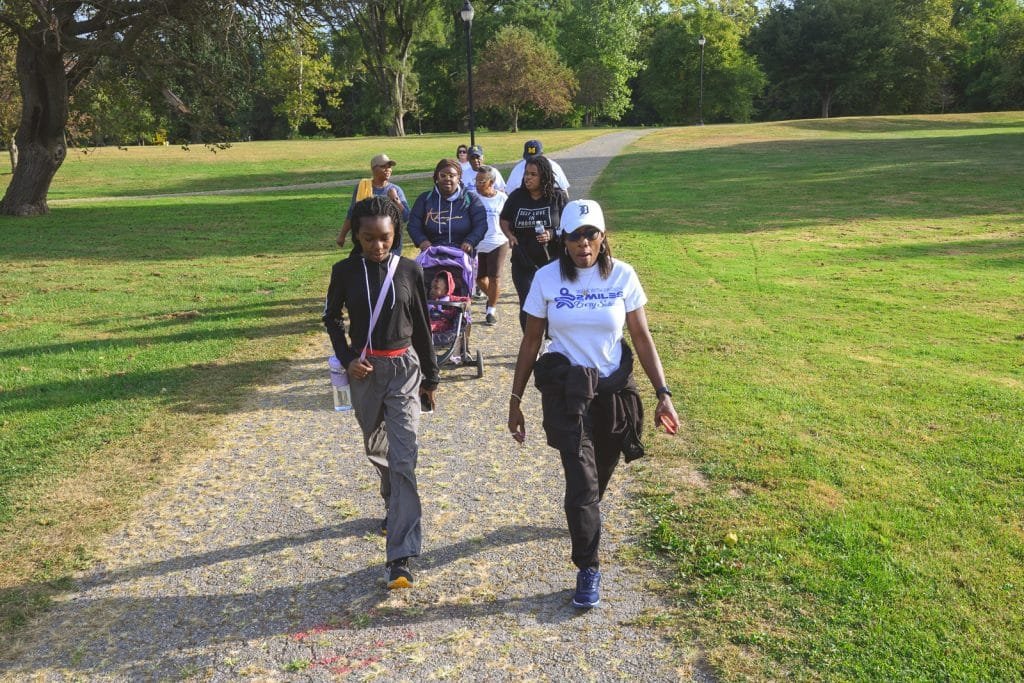Key Takeaways
- Sitting down for extended periods of time can have repercussions, including heart disease, diabetes, hypertension, and obesity.
- The good news is that taking a walk regularly can offset those health problems.
- If walking is the only type of physical activity you can commit to, experts say it’s healthy enough when paired with a nutritious diet.
For some people, walking may be the only form of physical activity that is accessible, affordable, and realistic. Luckily, experts say it’s considered enough to be healthy.
Is Walking Enough Physical Activity?
According to Benjamin Bengs, MD, an orthopedic surgeon and Director of Special Surgery at the Center for Hip and Knee Replacement at Providence Saint John’s Health Center in Santa Monica, California, walking alone may be sufficient. However, a more rigorous workout may be important to maintain “adequate quality of life and health” for younger people or people who tend to be more active.
“If all you can do is walk, then that’s what you should do,” he said. “But if you’re able to squeeze in some alternative things like the elliptical or stationary bicycles, those are good additions.”
Tracy Zaslow, MD, primary care sports medicine specialist at Cedars-Sinai Kerlan-Jobe Institute in Los Angeles, told Verywell that walking may be considered enough to be healthy. “Walking is a great activity, and it’s accessible to such a wide variety of the population. You don’t need any special equipment, facilities, skills, or training,” Zaslow said. “Plus, you can make adjustments to make it more advanced or intense over time.”
Ideally, adults should also do muscle-strengthening exercises such as push-ups and weight-lifting at least two days a week. For older adults, the WHO recommends varied types of physical activity three or more days a week that focus on balance and strength. This can help prevent falls as you age.
How Walking Can Improve Your Health
According to Bengs, a short daily walk can offer several health benefits, including:
Melody Ding, PhD, MPH, associate professor at the University of Sydney with expertise in epidemiology and chronic disease prevention, added that the benefits of walking are no different from those of most other forms of physical activity. Regular movement can help stave off chronic illnesses like cardiovascular disease, some cancers, and diabetes.
How Long Does a Walk Need to Be?
According to the Physical Activity Guidelines for Americans, adults should get at least 150 minutes of moderate-intensity physical activity—which is any activity that gets the body moving—each week. This can be split into 30 minutes a day, five days a week.
Nutrition Matters, Too
Ding emphasizes you can’t walk your way out of an unhealthy diet. Eating well is critical for a healthy lifestyle and reducing mortality risk.
A study led by Ding found that people with high levels of physical activity and a high-quality diet had the best chance of reducing their mortality risk, as well as death from cancer and cardiovascular disease, specifically.
Ding and her colleagues incorporated several food groups into their definition of a high-quality diet:
- 4.5 or more servings of fruits and vegetables per day
- 2 servings of fish per week
- limited red meat and processed meat consumption
“Regardless of how active you are, you should eat well, and regardless of diet, you should do physical activity,” Ding said. “Ideally, if you [do] both well, the mortality risk is the lowest.”
How to Upgrade Your Walk
If walking is your primary form of exercise, there are a few things you can do to make it more exciting or challenging:
- Increase your distance over time
- If accessible, change up your routine by walking a different route or going to a new park
- Add in weights such as a weighted vest
- Pick up the pace or incorporate speed in intervals
- Introduce elevation by walking up hills or stairs
- Listen to music or podcasts
- Join a walking group
If you’re just getting started with walking for the first time, Bengs and Zaslow said to start small, make realistic and achievable goals, and be patient with yourself.
“Even if you get frustrated and feel like giving up, be patient and stick with it,” Bengs said. “Don’t just give up if you have a day where you miss your walk or a couple of days where you couldn’t exercise.”
By Alyssa Hui-Anderson
Hui-Anderson is a health news writer and former TV news reporter. She was the 2020 recipient of the Midwest Broadcast Journalists Association Jack Shelley Award.
Thanks for your feedback!
What is your feedback?








